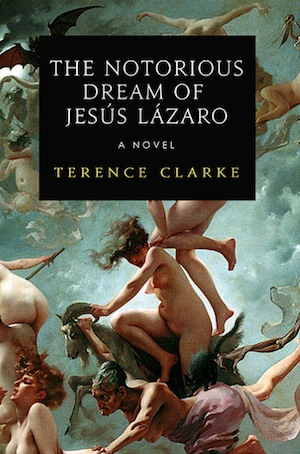As a devoted fallen-away Roman Catholic, my writing a novel about a Catholic archbishop and his deep questioning of his own beliefs was a difficult and, personally, very contentious process. My own long experience of The Church had led me to the conclusion that it is a self-serving bureaucracy intent upon maintaining control of its flock. Its nostrums about peace, faith, doing good and all that remain mere nostrums in light of its destructive polices toward birth control and population growth and the directly related consequences of world starvation, global warming, and more or less continuous war. Also, The Church's attitudes toward any scientific investigation that clashes with Church-imposed beliefs, its miring in disproven medieval visions of the nature of the universe, its obdurate disrespect for women's rights and those ancillary policies relating to women's second-class status in the Church hierarchy, their no-class status at the highest level of that hierarchy...the list does go on. The very term "flock" should cause laughter among those who belong to the Catholic faith since it implies a herd of thoughtless animals doing everything that its shepherd demands. Sheep do not ask whether the shepherd's ideas have worth. The priest bureaucracy well understands this, and has so for two millennia. It does everything it can--especially when it invokes the ultimate fallback, the Word of God--to maintain that control.
In his dealings with the flock, no priest is subject to any democratic ideal.
One of the main characters of The Notorious Dream of Jesús Lázaro is the archbishop of San Francisco Ruben Mullins. He is faced at the beginning of the novel with an offer from Jesús Lázaro, a mystic Mexican muralist with a grand ability for apocalyptic art, to paint giant murals on the entire façade of the Cathedral of Saint Mary in San Francisco, California. (It happens that, although the book is a fiction, the cathedral actually exists, at the corner of Gough and Geary Streets.) An archconservative prelate, Ruben thinks this is a lousy idea, refuses to have anything to do with it, and therein lies the tale. The irony is that although, when I began writing, I conceived of Ruben as the villain of the piece, once I got into it, his emotions changed, also apocalyptically. His handling of Jesús's request becomes something quite different from the stern apostolic refusal that I had thought it would be when I began writing the novel.
Despite protests in the street, the disapproval of the Vatican, a disastrous love triangle that threatens everything, and even possibly the wrath of God, the murals get painted.
To my surprise, Ruben is now the hero of the finished novel. He undergoes a transformation of faith that allows him to see the ascendancy of the spirit and creativity over the deadened dictates of the Church bureaucracy. His change in attitude is extremely painful for him because it flies in the face of everything he has believed since his very early childhood. But he realizes that what he has believed came to him through unquestioning rote acceptance of the tenets of his faith. He also sees that these tenets are used for the furtherance of the careers of the Church bureaucracy, and are irrelevant to artistic endeavor and emotional discovery.
A publisher friend of mine recently told me, "Terry, you didn't write about a parish church. You wrote about a great cathedral. You didn't write about a simple priest. You wrote about an archbishop. And Jesús Lázaro doesn't dabble in the arts. He's one of the greatest painters of the 21st century." She smiled, tapping my chest with an index finger. "Have you no modesty?" That the novel attempts from time to time to address some of the biggest political issues that face us now is for me a by-product. In the end it is about the human creative spirit and how it always finds ways to prevail. The novel is also, I should add, very humorous. That I was able to write it astonishes me.
Terence Clarke's The Notorious Dream of Jesús Lázaro was published in 2015. His collection of stories, New York, will come out later this year.

